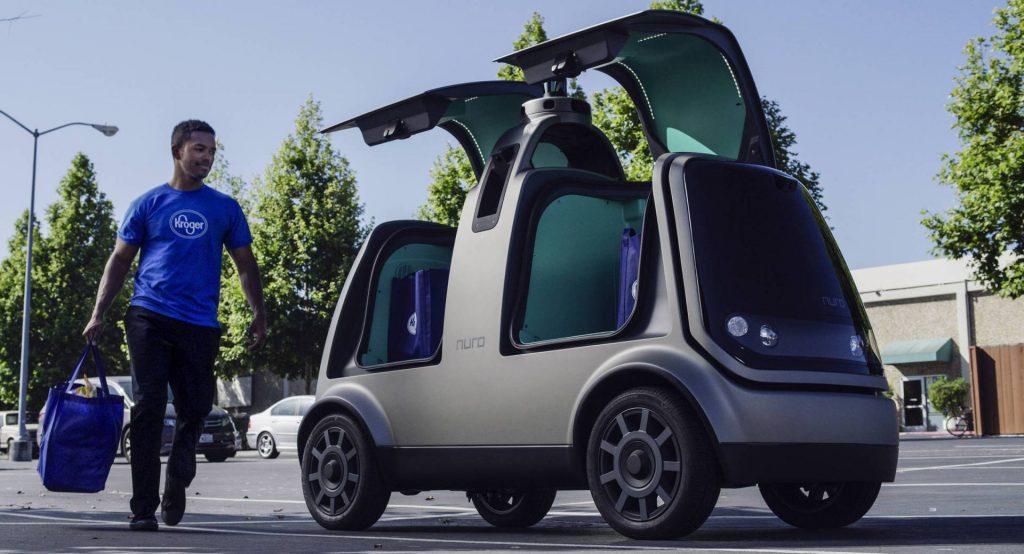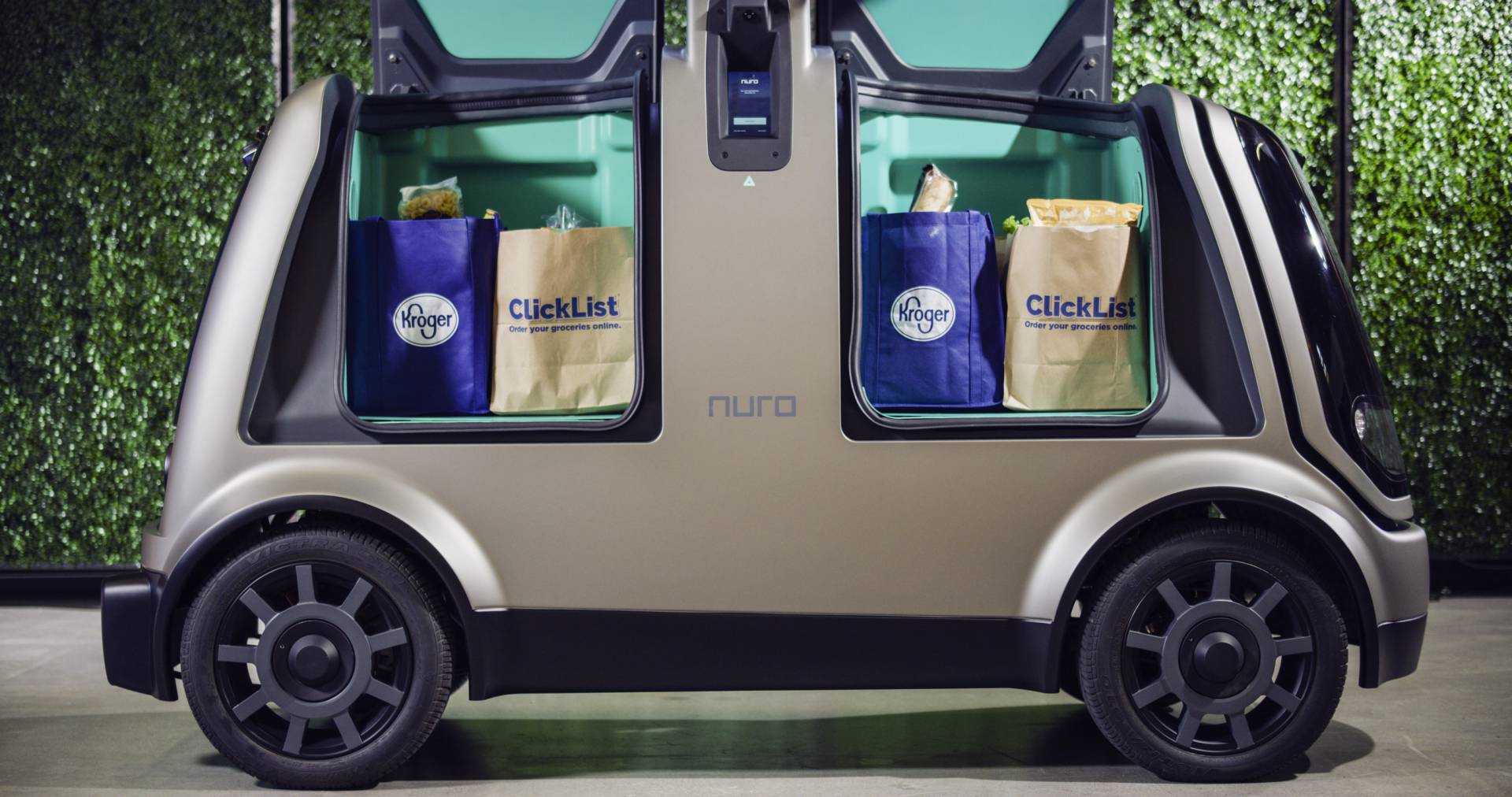The state of California has announced that it will allow ‘light-duty’ autonomous delivery vehicles to hit public streets.
The Verge reports that the new rule only applies to vehicles that weigh less than 10,001 lbs (4,536 kg) and will, therefore, be capped at Class 1 and 2 trucks including minivans, pickup trucks, step vans, and utility vans. Companies will need to apply for permits that will vary depending on whether or not a backup driver will be present.
Those vehicles that do feature backup drivers will need to use trained drivers with clean records and require proof of testing under controlled conditions as well as timely reports for collisions and human interventions. Test vehicles without a backup driver will need a certified link to a remote operator, a police ‘interaction plan’, and verification that the cars meet federal safety standards and feature Level 4 or 5 autonomous capabilities.
More: Nuro’s Driverless Pods To Start Delivering Groceries In Houston This Spring
For certain public testing, vehicles will also require data recorders, certified resistance to cyberattacks, and assurances that the vehicle is safe to deploy. Additionally, vehicles need the ability to share owner and operator information in the event of a crash.
The market for light-duty autonomous vehicles used for commercial purposes remains very small, but has huge growth potential. One noteworthy company, Nuro, has been testing its self-driving delivery service with pilot programs in Arizona and Texas and has revealed that it will apply for a permit to also begin testing its autonomous vehicles in California.
California’s DMV can start approving permits in 30 days.




